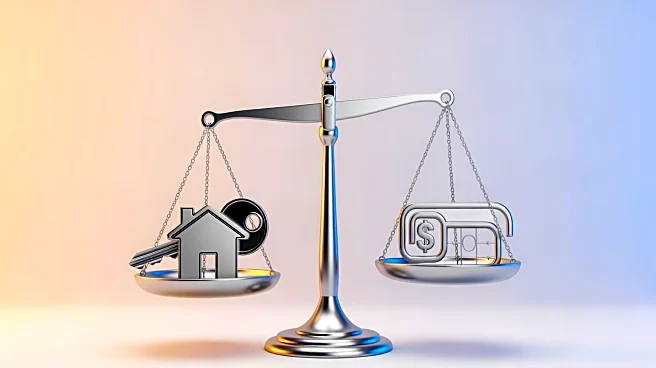What's Happening?
Rent payments are increasingly being reported to credit bureaus, with the percentage of consumers affected rising from 11% in 2024 to 13% in 2025, according to TransUnion. This trend is seen as beneficial
by many in the credit industry, as it helps individuals with limited credit histories build their credit scores. However, experts like Chi Chi Wu from the National Consumer Law Center caution that these programs can be detrimental if they report missed or late payments. Such negative entries can severely impact a renter's ability to secure housing, as landlords often scrutinize credit histories closely.
Why It's Important?
The inclusion of rent payments in credit reports can significantly affect renters, particularly those with inconsistent payment histories. While the practice can help some individuals improve their credit scores, it also poses risks for those who may miss payments. This could lead to difficulties in securing future housing, as landlords may view late rent payments as a major red flag. The broader implication is a potential increase in housing insecurity for vulnerable populations, highlighting the need for careful consideration of how rent reporting is implemented.










